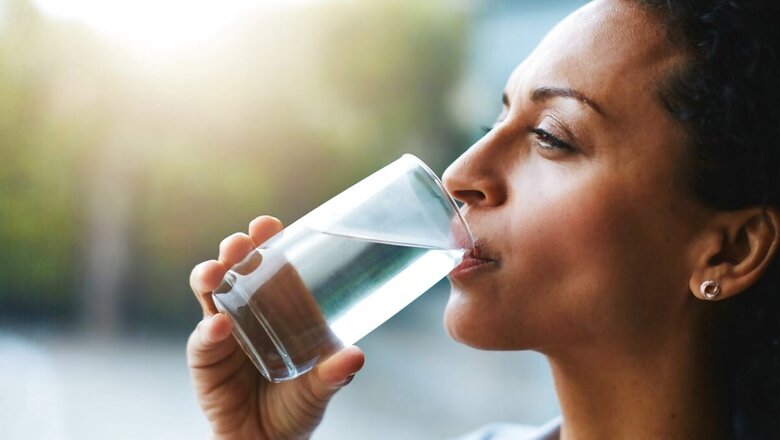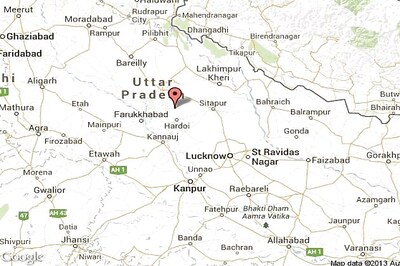
views
There’s a reason we call water the ‘elixir of life’: by weight, the human body is about 70% water.
It makes up 83% of our lungs, 79% of our muscles and kidneys, 73% of our heart and brain, 64% of our skin and even our bones contain 31% water.
And yet, we pay enormous attention to food, exercise, how much sunlight we get, the air quality, etc. But when it comes to water, it doesn’t really occupy our headspace beyond making sure that the water filter is working properly.
Having said that, hydration isn’t just about getting enough water into our system. For good hydration, we need to aim at ‘fluid balance’. In simple terms, this means having the right balance of fluids and electrolytes so our body can keep humming along at peak efficiency. Electrolytes are a fancy word for the salts and minerals the body needs to regulate various bodily functions, such as nerve impulses, muscle contractions, blood pressure, and pH levels. Some of the most important electrolytes are sodium, potassium, calcium, magnesium, chloride, and bicarbonate.
When we lose water through sweating, urination, diarrhoea, vomiting, or fever, we also lose electrolytes. If we don’t replenish them, we experience dehydration, which can have serious consequences for our health and well-being.
Dehydration and Cognition
Dehydration isn’t just about feeling parched – it can have a profound impact on our cognitive abilities. Even mild dehydration can impair our memory, mood, concentration, and reaction time. According to a study, fluid loss of 1.4% after exercise can reduce our ability to focus and increase the frequency of headaches. Another study found that fluid loss of 1.6% can worsen our working memory and increase feelings of anxiety and fatigue.
The brain’s intricate network relies on proper hydration to maintain its delicate balance of neurotransmitters and electrical impulses. When deprived of adequate hydration, these processes can be compromised, affecting our ability to think clearly and make informed decisions.
Dehydration and the Heart
The heart, the powerhouse of our circulatory system, benefits immensely from proper hydration. Our blood is composed of about 50% water. Dehydration can reduce blood volume and make it thicker and harder to pump through our vessels. This can increase blood pressure and strain the heart. Dehydration can also cause an imbalance in electrolytes, which can affect heart rhythm and lead to arrhythmias or cardiac arrest.
When well-hydrated, the blood is less viscous, allowing it to flow more easily through blood vessels. It helps the body maintain optimal blood pressure and also reduces the risk of clot formation. All of these factors lead to lower strain on the heart, decreasing the likelihood of cardiovascular issues.
Dehydration and the Kidneys
The kidneys are responsible for filtering waste products and removing excess fluids, salts, and waste products from your body, by excreting them as urine. They also regulate the body’s blood pressure and electrolyte balance.
Since most of this regulation is done through urine production, dehydration puts enormous strain on the kidneys. Water helps dilute the urine and prevent the formation of kidney stones, which are hard deposits of minerals that can cause pain and infection. Water also helps prevent urinary tract infections (UTIs), which are caused by bacteria that enter the urinary system. UTIs can affect the bladder, urethra, or kidneys, and cause symptoms such as burning sensation, frequent urination, lower abdominal pain, fever, and blood in the urine.
Good hydration protects our kidneys from damage and keeps them functioning properly.
Dehydration and Reproductive Wellness
For men, good hydration is the key to healthy sperm production. Water helps produce semen, which carries sperm cells to fertilise an egg. Dehydration can reduce sperm count and motility, which can affect fertility.
When it comes to women, hydration is closely linked to reproductive health. Poor hydration can disrupt hormone regulation, menstrual cycles, and fertility. Water also helps maintain vaginal lubrication, preventing irritation and infection. Hydration is key during pregnancy, as it supports the increased blood volume necessary for the developing baby.
Battling Dehydration With The Right Tools
One of the best ways to stay hydrated is to drink plain water throughout the day. However, water alone isn’t enough to replenish your electrolytes if you lose a lot of fluids due to exercise, illness, or hot weather. On a normal day, the electrolytes contained in your food are good enough. However, care must be taken during heatwaves, after heavy physical exercise, and of course, during illnesses such as fevers, vomiting and diarrhoea. During such times, we lose water and electrolytes much faster than we can replenish them, and this is where the danger lies.
Fortunately, this situation has an easy fix. Since the 1960s, Oral Rehydration Solution (ORS) have proven effective in quickly rehydrating the body. So much so, that the World Health Organisation spent several years sponsoring research into perfecting the formula. This formula is identified as WHO ORS, and has been available in India since 1972 as Electral.
WHO ORS like Electral are finely calibrated to give the body exactly what it needs to recover. For best results, it is important to follow the directions on the package when preparing ORS. Electral, for instance, is available in two sizes: the large packet is meant to be dissolved in 1 litre of water, and the small package in 200ml or 1 glass of water. It is also available in ready-to-drink tetrapak form, which is perfect for the road.
You don’t need to wait to be ill or severely dehydrated to take an Oral Rehydration Solution. Sometimes, dehydration sneaks up on us – maybe you’ve been out all day, running errands in the sun. Maybe you’ve been at an event where the water coolers were too crowded. Maybe you’re running a slight fever. Whatever be the cause, if you suspect you’re dehydrated, take action. You’ll have warded off dehydration before it could really hurt you.
Remember, good hydration isn’t just about warding off dehydration. It’s about giving your body enough fluids and electrolytes to keep your system active and happy. Make hydration a priority and a habit – your body will thank you for it.
This is a partnered post.




















Comments
0 comment